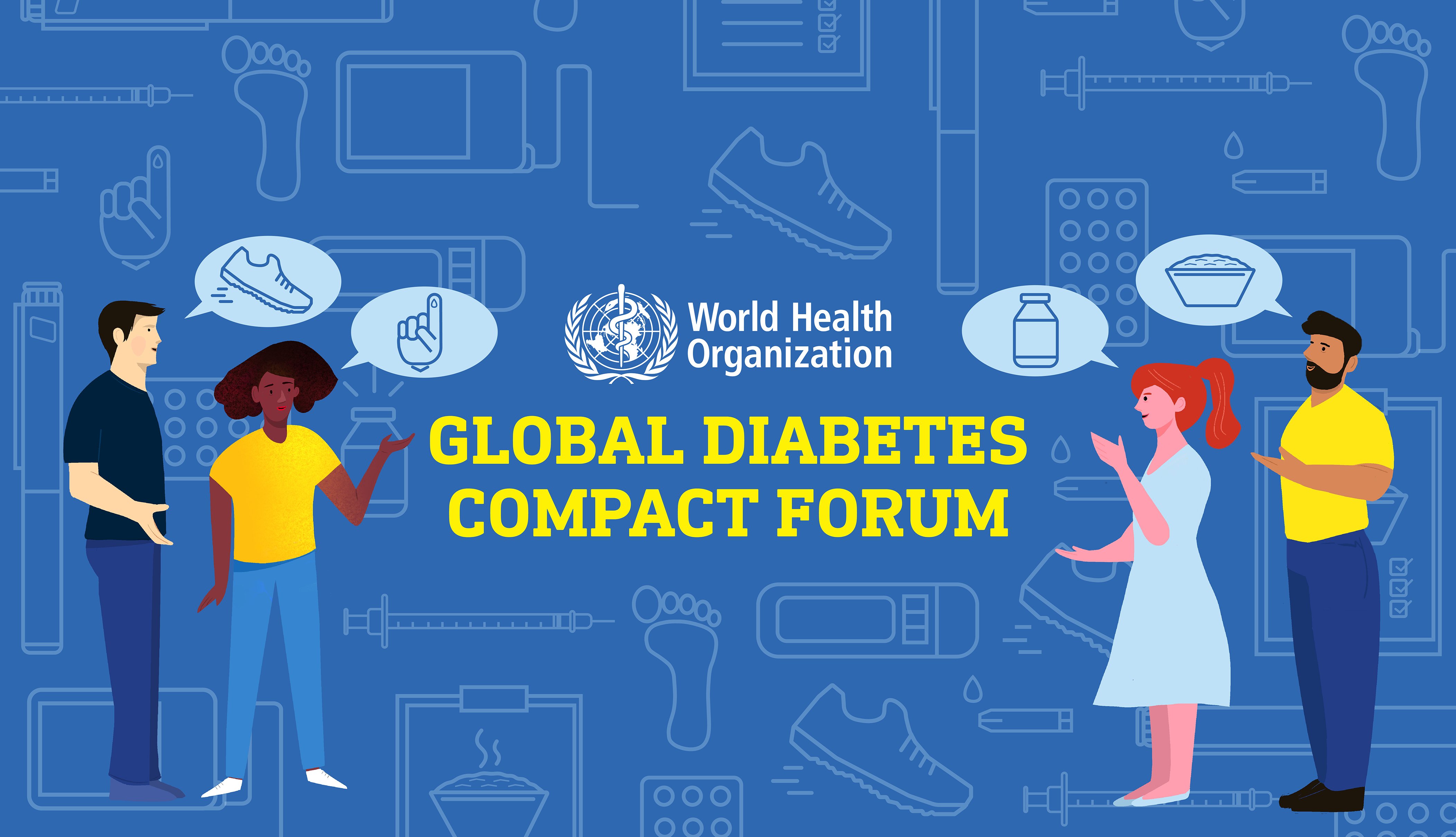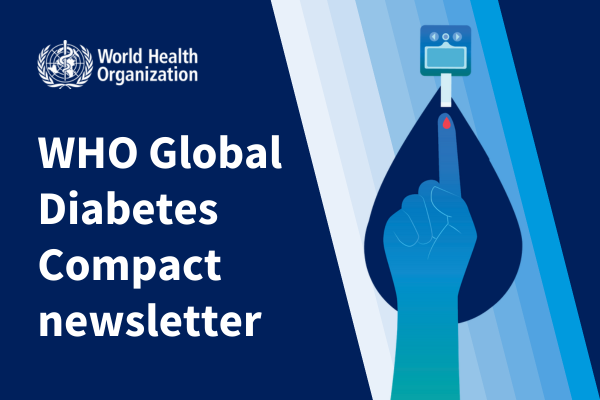
Functions
As an advisory body, the main functions of TAG-D are to:
- identify and describe current and future challenges in relation to WHO’s aims;
- advise WHO on strategic directions to prioritize;
- advise WHO on the development of global strategic documents; and
- propose other strategic interventions and activities for implementation by WHO.
Roles
TAG-D provides technical advice relating to WHO’s work on diabetes in several areas.
- Leadership: TAG-D supports efforts to elevate the priority of diabetes on global and national agendas.
- On the prevention side, this includes advocating for stronger action to reduce obesity, especially among young people.
- On the treatment side, this includes promoting improved access to diabetes medicines and technologies as part of primary health care strengthening efforts, particularly in low- and middle-income countries.
- Global goods: TAG-D is helping to bring all WHO tools for the prevention and management of diabetes together in one package.
- Country support: TAG-D is supporting countries to establish national coverage targets aligned with the WHO global diabetes coverage targets. This work focuses on expanding access to quality diabetes services, including medicines and health technologies, while strengthening accountability and tracking progress in integrating diabetes into primary health care and universal health coverage frameworks.
Membership
Members of TAG-D represent a broad range of disciplines relevant to diabetes. Their expertise includes early diagnosis and treatment, prevention and comorbidities. TAG-D meets online twice a year.
When selecting TAG-D members, WHO considers the distribution of technical expertise, geographical representation and gender balance across the group. Lived experience of diabetes is also considered in the selection process.
Members of TAG-D serve for a period of two years and are eligible for reappointment after their term finishes. Sign up for the WHO Global Diabetes Compact newsletter for the latest information about TAG-D recruitment.
TAG-D members must respect the impartiality and independence required of WHO. Further details about safeguarding WHO from conflicts of interest are included in the TAG-D terms of reference.
Meeting reports
All →Report of the eighth meeting of the WHO Technical Advisory Group on Diabetes: meeting report, 16-17 June...
The WHO Technical Advisory Group on Diabetes (TAG-D), established in August 2021, will provide technical advice to WHO on matters relating to WHO’s...
Report of the seventh meeting of the WHO Technical Advisory Group on Diabetes: meeting report, 2-3 December...
The WHO Technical Advisory Group on Diabetes (TAG-D), established in August 2021, will provide technical advice to WHO on matters relating to WHO’s...
Report of the sixth meeting of the WHO Technical Advisory Group on Diabetes: virtual meeting, 24–25 June...
The WHO Technical Advisory Group on Diabetes (TAG-D), established in August 2021, will provide technical advice to WHO on matters relating to WHO’s...
Report of the fifth meeting of the WHO Technical Advisory Group on Diabetes: hybrid meeting, 7–8 June...
The WHO Technical Advisory Group on Diabetes (TAG-D), established in August 2021, will provide technical advice to WHO on matters relating to WHO’s...
How we engage with other groups
In addition to our engagement through TAG-D, we also work with people living with diabetes. Our annual virtual engagement events for people living with diabetes and World Diabetes Day activities provide opportunities for people with lived experience to connect with others and give feedback on WHO initiatives and technical products.
We also engage with nongovernmental organizations, academic institutions and other groups through the Global Diabetes Compact Forum. Members of the Forum collaborate by sharing ideas, information and views that advocate for access to equitable, comprehensive, affordable, quality treatment and care.
Members
Amanda Adler
Yacoba Atiase
Abdul Basit
David Beran
Bishwajit Bhowmik
Philippa Boulle
Sonou Dit Balla Diarra
Edward Gregg
Reena Gupta
Sheena Ramazanu
Nikhil Tandon
Nermeen Youssef


